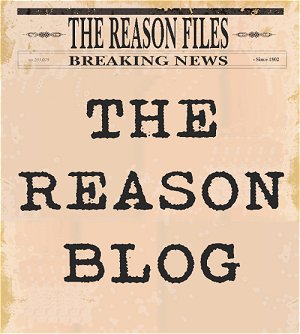by Robert Tuttle
Much has been made of Christian churches singing songs by Hillsong, Bethel Music, Jesus Culture, Elevation Music, and other modern, Contemporary Christian Music because of their ties to Pseudo-Christian, New Apostolic Reformation churches. And rightly so. Some, such as Elevation Church and its pastor, Steven Furtick, teach blatant heresy. Churches like Hillsong, Bethel, and Jesus Culture Sacramento are affiliated with the New Apostolic Reformation (NAR), a hyper-Charismatic religious movement that believes and teaches a Jesus that is different than the Jesus of the Bible (though they would vehemently deny this). The NAR Jesus emptied himself of all his divine attributes. This is known as the kenosis, or the kenotic heresy. While they insist their Jesus was still God, he still divested himself of all divine attributes. The problem with this is, that common sense tells us that if he was empty of divine attributes, then he was no longer God!
Furthermore, the NAR Jesus died on the cross not to atone for the sins of those who believe in him, but rather to guarantee his believers would prosper in both their physical health, and their material wealth. The NAR (and also the Word of Faith movement adherents who believe in the same Jesus as the NAR) also believes that their Jesus died and went to hell, and suffered there, and had to be born again and that is what pays for the sins of Christians. They teach that Jesus went to hell in our place, and served as a ransom paid by God to Satan to rescue Christians from hell.
Friends, this is not only heresy, but blasphemous heresy!
Steven Furtick, the founder and pastor of Elevation church, however, is a different story. Not only does Furtick teach a different Jesus, but a different god altogether! Steven Furtick has embraced the false god of his spiritual mentor, T.D. Jakes (founder and pastor of The Potter’s House church); and like Jakes, Steven Furtick is a Trinity denying Modalist.
Oh, to be sure, Furtick (and Jakes) will claim that he does believe in the Trinity: God the Father, God the Son, and God the Holy Spirit. The difference between Steven Furtick and biblical Christianity is, biblical Christianity believes in and teaches that God is three distinct but inseparable persons, co-equal, co-eternal, and consubstantial; while Steven Furtick believes in and teaches Modalism, which states that God the Father, God the Son (Jesus Christ), and God the Holy Spirit are not distinct inseparable persons, but rather three modes or manifestations of the one God. In other words, The god of Modalism, the god of Steven Furtick, is Jesus. And sometimes he changes modes and becomes the Father, and sometimes he changes modes and becomes the Holy Spirit. A totally different god than the God of the Bible.
And so, because of the blatantly false teachings of these churches, the fact that they believe in and teach a different Jesus and a different God, discerning Christians refuse to sing songs written by these people. After all, the god and the Jesus mentioned in their songs are not the god and not the Jesus of the Bible, but rather the NAR Jesus and the god of Modalism.
This article is not about the songs written by these modern heretics, songs that unfortunately are still being sung in some churches and by some professing Christians. No, this article is about a much older song, a beloved song that is sung in almost every church during the Christmas season. Before I tell you the title of that song, let me tell you a bit about the writers of that song.
Edmund Hamilton Sears (1810-1876) was a Unitarian minister. Rev. Sears wrote the words to the song. Unitarians, and thus Rev. Sears, believe that God is one person. They believe the Father is divine, but they deny the deity of Jesus Christ. They deny the Trinity. In other words, Unitarians, and this Rev. Sears, believe in a different god rather than the God of the Bible.
Furthermore, Unitarians, and thus Rev. Sears, deny the doctrine of original sin, and they deny the doctrine of eternal punishment in hell. These are the strange, heretical beliefs of Edmund Hamilton Sears, but they are not his only strange heretical beliefs.
Although Sears was a Unitarian, and not just, but a Unitarian minister, he was also heavily influenced by Swedenborgianism, the religious movement based on the teachings of Emmanuel Swedenborg.
According to Swedenborgianism, God has many names, depending on the religion and beliefs of the individual. They deny the deity of the Holy Spirit, they deny the Trinity, and they believe that Jesus Christ did not atone for our sin on the cross. Swedenborgianism teaches that salvation comes through the sincere practice of an individuals religious beliefs, whatever they may be, whatever religion the individual might belong to. They believe we determine our own afterlife, which is spiritual and based on how well and how sincerely we practice our particular religion while still alive.
As a Unitarian, Edmund Sears denied the deity of Jesus Christ. As a Swedenborgian, however, he actually believed in the deity of Jesus, but went on to claim that while Jesus was God, He was the only God. He denied the deity of the Holy Spirit, and believed that God the Father was the divine essence within Jesus; or that something within Jesus that made Jesus divine.
Swedenborgians, and thus Edmund Sears, believe that Jesus, who is God, took on a human body at the incarnation, and so became a human. They say that when Jesus prayed to the Father, this is evidence of Jesus progressing to the point where his human body would become one with the divine. Then, after his death, when he rose from the dead; they say Jesus discarded his human body, and he put on a new human body that comes from the divinity within him. At that point, Swedenborgianism teaches, Jesus became “The Divine Human.”
Finally, Swedenborgians, and thus Edmund Sears, accept only 27 of the Old Testament books as divinely inspired by God. They reject the books of Ruth, 1st and 2nd Chronicles, Ezra, Nehemiah, Esther, Job, Proverbs, Ecclesiates, and the Song of Solomon. Of the New Testament, they believe only the four gospels and the Book of Revelation are inspired by God. They believe and teach that the rest of the New Testament, the Acts of the Apostles and various Epistles, are divinely “influenced” but not divinely inspired. They believe the Bible, taken literally, is nothing more than a collection of parables, which serve to hide the secret knowledge of the Bible, that can only be understood by those who have been enlightened by God, namely of course, Swedenborgians.
And now, what was the beloved hymn written by the Unitarian Swedenborgian Edmund Sears? It was one we all know and have sung many times. It was It Came Upon A Midnight Clear.
Some people have noted that God is not mentioned anywhere in It Came Upon A Midnight Clear. But this is not so. It contains a reference to the only God the Swedenborgians believe in. The reference is found in the first verse, where it states, “heaven's all-gracious King.” That is Jesus Christ according to Swedenborgianism, and that is who the verse refers to.
No doubt there will be some who read this article who will instantly judge me to be a “Pharisee,” or “Legalistic,” or something similar. They are those who believe God is liberal and doesn’t care what songs we sing to Him, or how we worship Him. “Grace!” they shout, “God’s grace!” And they claim “Christian liberty” gives them permission to sing and worship as they desire rather than how God desires. For these people to be correct, however, the God of the Bible has had to change His nature (something Scripture says He will not and cannot do). For the Old Testament gives example after example after example of God punishing those who do not worship Him in complete, total, sincere reverence; being particular not to bring anything unclean before Him.
To follow the logic of those people who say there is nothing wrong with singing praise songs by Hillsong, Elevation, Bethel, or Jesus Culture; or Christmas hymns by the Unitarian Swedenborgian Edmund Sears; then it should follow that it is just as permissible to sing songs by Mormons, or Jehovah’s Witnesses, or Christian Science, or worldly songs for that matter. After all, unbelievers are unbelievers, and if songs by some unbelievers are acceptable then songs by all unbelievers should be acceptable. Unless, of course, there a certain degree of hypocrisy in those who advocate for singing songs by some unbelievers but not all unbelievers.
When I hear professing Christians singing these praise songs and Christmas songs written not just by unbelievers, but by heretics and blasphemers; I am reminded of Nadab and Abihu bringing strange fire before the Lord, and I can’t help thinking these professing Christians will one day have to give an account to the Lord as to why they thought music from blasphemers and heretics was acceptable.
At the end of the day, each one of us will have to decide if we will sing praise songs and Christmas hymns written by blasphemers and heretics. I hope and pray that each one of you will prayerfully consider what I have now told you in this article. As for me and my house, however, we will serve the Lord.


 RSS Feed
RSS Feed
